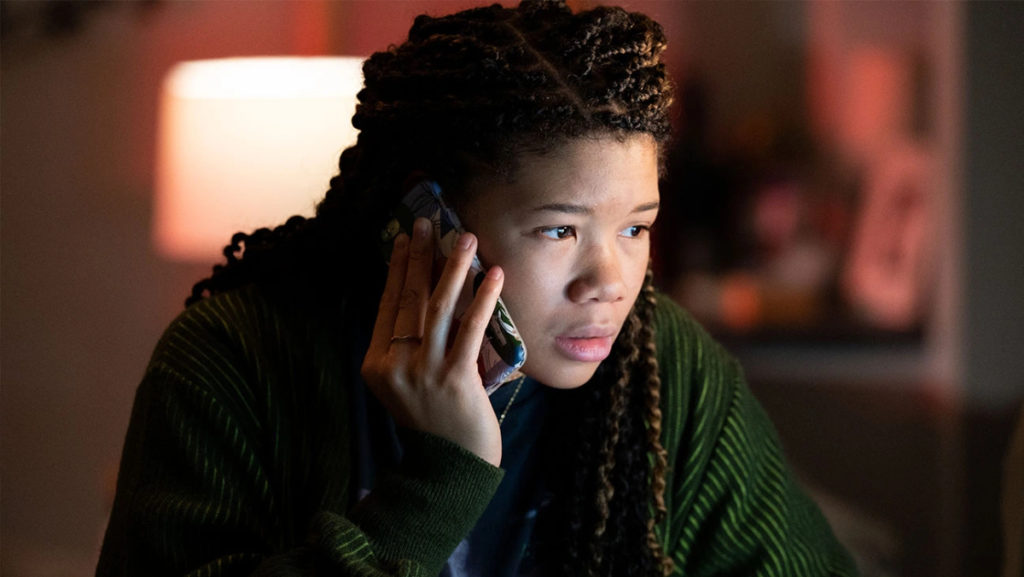Five years after the indie phenomenon that was Aneesh Chaganty and Sev Ohanian’s “Searching” comes a half sequel, half spin-off and all-around fun time, “Missing.” Starring Storm Reid as a teenager who must search for her mother (Nia Long) after she never returns from a vacation, this thriller is tense and nail-biting, even if it’s one audiences have seen before.
Following the style of the previous film, “Missing” is also told entirely through the lens of the digital world. Whether it be the screen of a computer, phone or security camera, the audience is always watching the same screen as the characters in the film. The filmmakers cleverly circumvent the potential for a lack of personability with the characters by ensuring we can see their faces nearly 100% of the film. All of the actors in the film appear through the FaceTime app or through a pre-recorded video that the other characters are viewing. Unlike its predecessor, however, the digital landscape is not utilized in a similarly inventive way, often resorting to the same modes of storytelling throughout the narrative without introducing newer and unexpected styles.
Despite stepping down as director and co-writers, Chaganty and Ohanian receive story and producer credits, and the selection for new directors has been passed to members of the production team for “Searching.” The mantle of director has been handed to Will Merrick and Nicholas D. Johnson, who have collaborated with the team before, both serving as editors of Chaganty’s two previous films. The task of developing a sequel to a film with a cult following like “Searching” is a difficult one, but Johnson and Merrick fall into the roles well. The duo is able to develop a world stylistically similar to the prior film but still succeed in introducing new ideas and keeping the story fresh. While the first film in the franchise focused on the consequences of chronic internet use and the ramifications of “incel” behavior, this film has more to say about true crime, and how the internet sometimes leads to viewing the past with rose-tinted glasses when revisiting old memories posted online.
Reid and Long both showcase their immense talent throughout the film, giving audiences plenty of emotional range and a deep display of empathy as these two characters navigate their circumstances. While some of the twists fall flat or end up being somewhat uninspired choices for the story to make, many moments will have audiences on the edge of their seats, begging to find out who is responsible for the disappearance.
Overall, “Missing” serves its purpose as a thriller. There is well-developed tension and drama between the characters, performed quite well by the actors, but the film does not push the same types of boundaries as its predecessor. “Searching” was a film that many continued to talk about for months after its release, citing how it utilized the digital space to enrich the intrigue of the mystery, while also serving as a way to examine the more sinister side of how the internet impacts our day-to-day lives. However, “Missing” only accomplishes its basic tasks of developing a thought-provoking mystery and mimicking its predecessor’s style. It’s a shame that it does not strive to break out of the expectations set up by “Searching.”




















